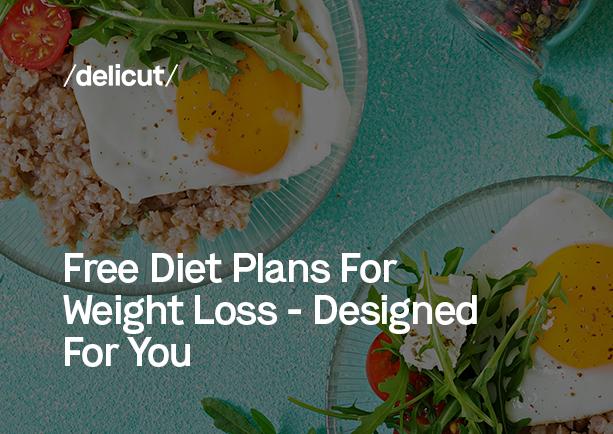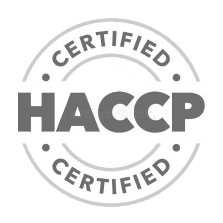Free Diet Plans For Weight Loss - Designed For You

A weight loss journey requires more than just determination; it demands a well-structured and personalized approach to nutrition. A carefully curated diet meal plan is pivotal in achieving weight loss goals, providing the necessary balance of nutrients while fostering sustainable habits.
In health and wellness, personalized, free diet meal plans emerge as a powerful tool for individuals striving to shed excess weight.
Recognizing the uniqueness of each person's body and lifestyle, these tailored plans offer a roadmap to effective and sustainable weight loss. As we delve into the world of "Free Diet Plans For Weight Loss - Designed For You," we'll explore the significance of such weight loss diet plans, highlighting their versatility to cater to diverse preferences and nutritional needs.
Understanding Your Dietary Needs
Age, activity level, and dietary preferences are crucial factors influencing the success of a weight loss journey. As we age, our metabolism evolves, requiring caloric intake and nutrient distribution adjustments. Similarly, factoring in daily activity levels ensures energy consumption aligns with expenditure, optimizing weight loss efforts.
Individuals can utilize online calculators or consult with nutrition professionals to assess personal caloric and nutritional requirements. Understanding basal metabolic rate (BMR) aids in establishing a baseline caloric intake while factoring in physical activity levels refines these estimates.
Considering macronutrient ratios ensures a balanced diet that meets individual needs.
The Balanced Diet Plan
A balanced diet plan is a cornerstone of sustainable weight loss, encompassing diverse food groups to ensure comprehensive nutritional intake. A well-rounded daily meal plan includes whole grains, lean proteins, fruits, vegetables, and healthy fats. Whole grains like quinoa or brown rice provide complex carbohydrates for sustained energy, while lean proteins like chicken or tofu support muscle maintenance and repair.
A day's meal plan might begin with whole-grain oats topped with berries and a handful of nuts for added fiber and healthy fats. Mid-morning snacks could consist of Greek yogurt with sliced fruits, offering protein and probiotics.
Lunch might feature a colorful salad with leafy greens, grilled chicken, assorted vegetables, and a drizzle of olive oil. Afternoon snacks could include a small serving of hummus with carrot sticks, balancing protein and fiber.
For dinner, a well-portioned piece of baked salmon or a plant-based protein source like lentils can be paired with quinoa or sweet potatoes and various roasted vegetables. Adequate hydration throughout the day and moderation in portion sizes contribute to the overall success of the balanced diet plan.
The Low-Carb Diet Plan
A low-carb diet is a popular approach to weight loss that focuses on reducing the intake of carbohydrates, encouraging the body to burn stored fat for energy. The fundamental principle involves limiting high-carbohydrate foods like bread, pasta, and sugary snacks while prioritizing protein, healthy fats, and non-starchy vegetables.
A sample day's meal plan for this diet might begin with a breakfast of scrambled eggs with spinach and avocado, providing protein and healthy fats. Mid-morning snacks could include a handful of almonds or a cheese stick for a satisfying energy boost without the carb overload.
Lunch might include a grilled chicken salad with mixed greens, cherry tomatoes, and olive oil dressing.
Afternoon snacks could feature sliced cucumber or celery sticks with guacamole, offering a crunchy, low-carb alternative. A serving of baked fish or grilled tofu with steamed broccoli and cauliflower rice replaces traditional high-carb options for dinner. Hydration is crucial, and herbal teas or water with lemon can be enjoyed throughout the day.
The Mediterranean Diet Plan
The Mediterranean diet, renowned for its health benefits, particularly emphasizes heart health and weight management. Rich in fruits, vegetables, whole grains, lean proteins, and healthy fats, this diet is associated with reduced risks of cardiovascular diseases and effective weight maintenance.
The abundance of monounsaturated fats in olive oil, a staple in the Mediterranean diet, contributes to heart health by promoting healthy cholesterol levels. Including fish as a primary protein source provides omega-3 fatty acids, further supporting cardiovascular well-being.
The high fiber content from whole grains, fruits, and vegetables aids in weight management by promoting satiety and regulating blood sugar levels.
This weight loss diet meal plan could commence with a breakfast of Greek yogurt with honey and a handful of berries. Mid-morning snacks might include a small serving of mixed nuts. Lunch could feature a quinoa salad with tomatoes, cucumbers, olives, and feta cheese drizzled with olive oil.
Afternoon snacks might consist of hummus with carrot and cucumber sticks. For dinner, grilled salmon with a side of roasted vegetables and a quinoa pilaf provides a nutritious conclusion to the day.
Conclusion
In conclusion, the journey toward effective and sustainable weight loss is not a one-size-fits-all endeavor; it requires a thoughtful and personalized approach to nutrition. The diverse array of free diet plans available empowers individuals to choose a path that aligns with their unique goals.
As we embrace the idea of free diet plans designed for each person, it becomes evident that achieving weight loss goals is not just about shedding pounds; it's about cultivating a sustainable and fulfilling relationship with food.
FAQs
1. Is there a free plan to lose weight?
Yes, numerous free weight loss plans are available, offering a range of approaches such as balanced diets, low-carb regimens, and more. Many online resources provide personalized guidance and meal plans, making it accessible for individuals to embark on their weight loss journey without the need for expensive programs.
2. How to lose 5kg in 7 days diet plan?
Losing 5kg in 7 days is an ambitious goal and may not be sustainable or healthy for everyone. Extreme weight loss plans often involve severe calorie restriction and can be detrimental to one's health. It's advisable to focus on gradual, sustainable changes like a balanced diet, regular exercise, and staying hydrated, aiming for long-term results rather than rapid, short-term solutions.
3. How many kgs can you lose in 21 days?
The amount of weight one can lose in 21 days varies based on factors such as individual metabolism, starting weight, and lifestyle changes. Generally, a safe and sustainable rate of weight loss is 0.5 to 1 kg per week. Therefore, aiming for a loss of 1 to 3 kg in 21 days is more realistic and healthier, promoting habits that can be maintained for the long term.
Trending Searches:
Meal Plan Dubai | Affordable Meal Plans Abu Dhabi | Meal Plan Ajman | Meal Plan Al In | Meal Plan Sharjah | Meal Plan Subscription
Related Blogs
The Burnout Diet
Jan 30, 2026 | 8The mental load of “What should I eat today?"
Jan 22, 2026 | 8The real glow-up starts with your gut health
Jan 14, 2026 | 8Healthy food that doesn’t taste like “Diet Food”
Jan 17, 2026 | 8Why do most people in the UAE get their calories wrong
Dec 8, 2025 | 6DASH Diet Meal Plan
Nov 11, 2025 | 8Fatty Liver Meal Plan
Oct 31, 2025 | 8Pregnancy Diet Meal Plan
Oct 27, 2025 | 82000 Calorie Meal Plan
Oct 1, 2025 | 8Intermittent Fasting Diet Plan
Sep 5, 2025 | 8






